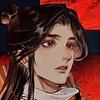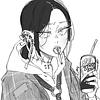Take a photo of a barcode or cover
Graphic: Death, Homophobia, Physical abuse, Rape, Sexual violence, Transphobia, Violence, Injury/Injury detail
Moderate: Sexism, Sexual assault, Suicide, Torture, Grief, War
Minor: Domestic abuse, Slavery, Kidnapping, Abortion, Pregnancy, Fire/Fire injury
Graphic: Sexual violence, Violence
Graphic: Death, Rape, Suicidal thoughts, Violence, Grief, Murder
Moderate: Child death, Domestic abuse, Self harm, Sexual assault, Injury/Injury detail
Minor: Miscarriage
Graphic: Sexual assault, Sexual content, Violence
And I think that's a large part of what makes it hard to review. I can't share all the emotions it made me feel by writing *about* it. To get the full experience, you have to read it yourself. It's vivid and intense and full of twists I didn't see coming but probably should have and the kind of book that leaves you completely exhausted at the end because you've been feeling so much along the way.
Another part of what makes this hard to review is how utterly dark it is. The first book was dark, too, don't get me wrong. Zhu is not a good person. She is ruthless and ambitious and claims she is willing to sacrifice anything to reach her goal, and this book puts that to the test. This is also a book where Zhu starts to challenge the bounds of a likeable character. In the first book, she was ruthless and ambitious and violent and did a lot of really horrible things. But in the context of a world that would rather let her starve than inconvenience a man, it didn't seem unreasonable. In this book, she had reached some measure of security - though still under threat, she was one of the four dominant military and political powers of the area. But her ambition to be the *greatest* kept her pushing onwards, even as she destroyed others in the process. She was still a dynamic, compelling character and I never really stopped rooting for her, but as the book progressed I found myself repeatedly confronting the reality of her actions and not really being sure how to feel about them. In some ways, it feels weird to even apply moral judgements here, though I can't fully explain why. But eventually both I and Zhu were looking at the consequences of her ambitions and wondering if it was really worth all that.
(Yet another thing I appreciate about this series: None of the women in these books - whether or not you want to count Zhu and her ambiguous gender identity as a woman - are shamed for their ambition or treated any worse than the men for their crimes. The society is blatantly misogynistic, but the narrative refuses to be.)
General Ouyang was a major player in the last book, and he still is in this one, but to a lesser degree. Some of that is because of his arc. Following on the events from the climax of book one, his is an equal but opposite story to Zhu. While Zhu's ambitions propelled her to further heights, Ouyang's relentless pursuit of revenge drove him to further lows. Zhu's resolve clarified as Ouyang's mind descended into chaos. I found myself mainly feeling compassion as he destroyed himself on the teeth of his own self-loathing. I wish he could have had a better ending, but he was so far gone that I think he got the best he could.
This book, being the last in the series, was an ending for every character, though not all of them died. Writing-wise, their endings made sense, fit with their arcs, and felt narratively satisfying. On a personal level, so many of them deserved better. Xu Da deserved better. Ma deserved better. Ouyang deserved better. Even Baoxiang deserved better (he deserved better last book, and even before - he is yet another case of an antagonist who I really just feel bad for).
And this brings me to the final reason this book is so hard to review: There is just too much to say. I haven't said anything about Baoxiang's story, even though he was a point of view narrator. I haven't talked about the gender politics involved in this story, or the absolutely spot-on depictions of that very specific and hard-to-define type of sexual trauma where you have sex when you really don't want to or with someone you don't want to have sex with as a means to get something else, or the theme of being seen in a gendered body (and, to a lesser extent, a visibly disabled body), or how it's paced so well that it feels like so much is happening without ever feeling rushed or monotonous, or the really awesome historical setting, or the ghosts.
If I talked about every amazing thing in this book, I could go on forever. But I've focused this review mainly on the characters, because despite all the action and adventure and ghosts and politics and invasions, this is a story about these characters and how their actions, good, bad, or otherwise, shape (and often end) the lives of the people around them and, ultimately, the course of history. This feels like a book (and, honestly, a series) that you could keep re-reading and discover something new every time. (It helps that these books are *long*.) So few sequels live up to their predecessor, but this one does - but it's also unique to the point where I can't say whether *She Who Became the Sun* or *He Who Drowned the World* is better because they're both so good for different reasons and in different ways.
I'm running out of eloquent ways to say "this is an amazing book, you should read the whole series," so there you go. This is an amazing book. So was the first one. You should read both - especially if you like stories that show your emotions no mercy.
Graphic: Death, Self harm, Sexual content, Violence, Blood, Grief, Injury/Injury detail
Moderate: Ableism, Child death, Homophobia, Infidelity, Misogyny, Sexual assault, Suicidal thoughts, Murder
Minor: Miscarriage, Death of parent
Graphic: Body shaming, Bullying, Deadnaming, Miscarriage, Misogyny, Panic attacks/disorders, Rape, Sexual content, Slavery, Suicidal thoughts, Torture, Violence, Vomit, Abortion, Fire/Fire injury, Outing, War, Injury/Injury detail
Graphic: Death, Self harm, Violence, War
Graphic: Ableism, Miscarriage, Misogyny, Self harm, Sexual assault, Torture, Violence
Moderate: Child death, Suicidal thoughts
The book picks up shortly after the end of the previous one. The land is ruled by the Mongol The Great Kahn. It very helpfully begins with a synopsis of the standing of armies and alliances in their search for power;
1. Zhu Chongba, (who took her brothers identity after he died and became a monk)
2. General Ouyang, unic and former slave.
3. Lady Zhang is a second group.
4. Lord Wang Baoxiang, the prince of Henan and brother of Esen.
I particularly enjoyed the relationship between Ouyang and Zhu - and the exploration of gender and identity attached to it. They are so different and yet have so many tangents. With the absence of Esen it did really highlight I only appreciated Ouyang as a foil to others characters, and not on his own merits.
On the flip side, the relationship between Ma and Wang Baoxiang practically gave me an emotional breakdown and I still don't know how I feel about it. Wang Baoxiang was a train wreck - in that it is catastrophic and yet I cannot look away.
The ending gave me goosebumps and I know I'll need to organise a re-read once I've emotionally processed just *everything*
Graphic: Rape, Sexual assault, Violence, War
In this book, we follow Zhu on her journey to become the emperor. She hatches some insane plans and joins in a tentative alliance with Ouyang, the eunuch general. I genuinely really liked most of their dynamic, both being outsiders in their society and outsiders to themselves. In addition to Zhu and Ouyang, we see many more surprising alliances and follow more ruthless players in their quests for power. While I appreciated the attempts at complexity within the characters, there were slightly too many people being genuinely evil for my tastes and too much torture and abuse. Some of the torture has its place (the examinations of grief and pain were somewhat interesting), but most of it was gratuitous, and the point of the brutality of Mongol-occupied China would have come across without it.
Like the first book, I enjoyed the discussion of gender, power, and identity. It was interesting to see powerful women (who were still powerless in many ways). I didn’t like the absolute refusal to acknowledge any forms of emotional attachment, and I hated Baoxiang. Also, like the violence, there were a few too many violent sex scenes. It got to a point of gratuity, and while the relationships were complex and interesting, the sex was not. I did like how Parker-Chan weaved the different parties together into a coherent overall scheme, and it felt realistic that things happened that the characters weren’t aware of. Finally, Ma didn’t get enough screen time.
Graphic: Self harm, Sexual content, Torture, Violence, War
Moderate: Sexual violence







